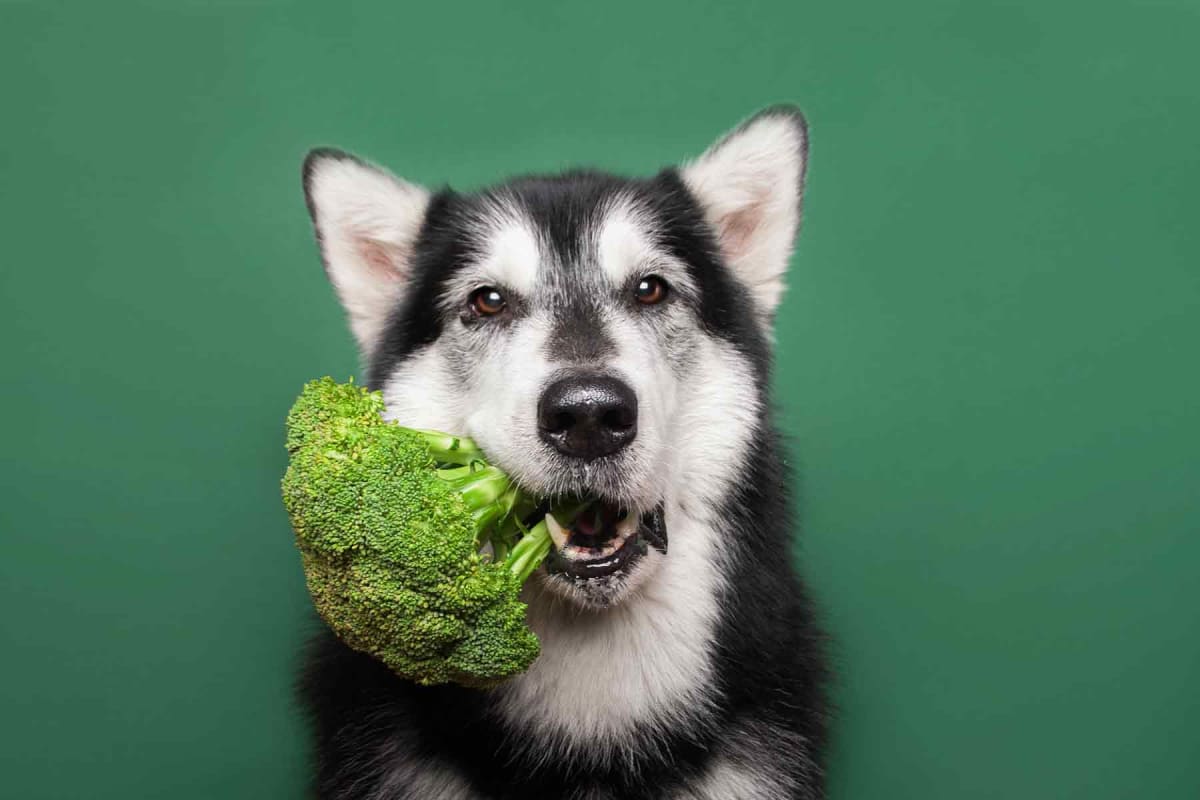
Can dogs eat broccoli?
Can dogs eat broccoli?
Can dogs have broccoli?
As a devoted dog parent, you're always careful about what goes into your furry friend's food bowl. Broccoli might have caught your eye as a healthy human vegetable, but is it safe for dogs?
Good news! Dogs can eat broccoli when served in moderation. However, there are some important guidelines you'll want to follow to ensure your dog's safety and well-being. Let's dig into everything you need to know about dogs and broccoli.
Is broccoli good for dogs?
Broccoli is a nutritional powerhouse. It's loaded with vitamin C, vitamin K, and fiber. These nutrients can support your dog's immune system, promote healthy bone development, and aid digestion. The vegetable is low in calories, making it a potentially great treat for dogs watching their weight.
Potential risks to consider
While broccoli offers benefits, it's not without risks:
The florets contain isothiocyanates, which can cause gastric irritation in dogs if consumed in large quantities.
The stalks can pose choking hazards, especially for small dogs, and may cause obstruction in the esophagus.
Some dogs may be allergic to broccoli, with reactions including diarrhea, vomiting, itchy skin, and breathing difficulties.
Always monitor your dog when feeding them anything new and contact your vet if you notice any signs of distress or discomfort.
How to serve broccoli to your dog
Preparation is key when serving broccoli to your dog. Follow these guidelines for safety:
Wash the broccoli thoroughly to remove pesticides and bacteria.
Cut it into small, bite-sized pieces to prevent choking.
Steam or boil the broccoli to make it easier to digest.
Serve it plain without any seasonings, oils, or additives.
Start with very small amounts to test your dog's tolerance.
How much broccoli can my dog eat?
While treats should make up no more than 10% of your dog's daily intake, some veterinarians recommend being even more conservative when it comes to broccoli due to the isothiocyanates it contains. Isothiocyanates are anti-inflammatory, but they can also cause dogs to have nausea, gas, bloating, and diarrhea.
FAQs about broccoli for dogs
Can puppies eat broccoli?
Puppies should not eat broccoli. Their digestive systems are still developing and can't properly break down the high fiber content found in broccoli. To avoid serious digestive complications, it's best to wait until your dog is fully grown before introducing broccoli to their diet.
Can dogs eat raw broccoli?
Adult dogs can eat raw broccoli, but it is harder for them to digest than cooked broccoli. That said, raw broccoli's high fiber content may benefit dogs with irregular bowel movements. If you choose to feed raw broccoli to your dog, make sure to wash it thoroughly to remove any pesticides or harmful bacteria.
Can dogs eat broccoli stems?
Adult dogs can eat broccoli stems, which have higher fiber content than the florets. However, stems pose potential choking hazards and can cause stomach upset if not prepared properly. To safely feed broccoli stems to your dog:
Cut them into small, bite-sized pieces.
Consider steaming them to make them easier to digest.
Monitor your dog while they eat to prevent choking.
Can dogs eat broccoli sprouts?
Yes, dogs can eat broccoli sprouts, which are actually more nutritious than mature broccoli! Sprouts can contain up to 100 times more sulforaphane than fully grown broccoli. This compound helps protect dogs against cancer, treats pain, and improves heart health.

Broccoli alternatives for dogs
Not all dogs enjoy broccoli, and that's okay. Other vegetables dogs can eat include:
Carrots
Celery
Green beans
Cucumber
Pumpkin
Every dog is unique. What works for one might not work for another. Always consult your veterinarian before making significant changes to your dog's diet. They can provide personalized advice based on your dog's specific health needs.